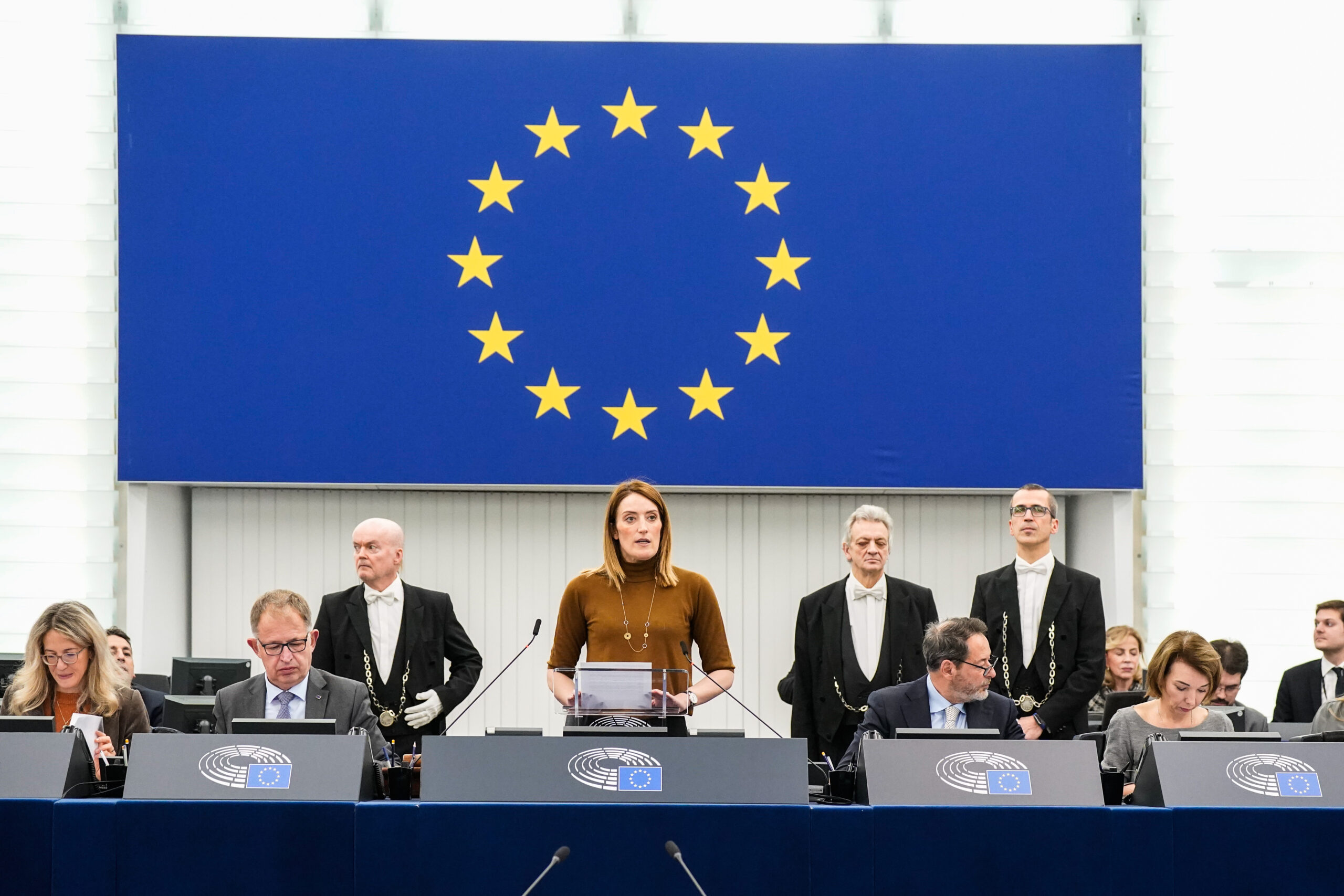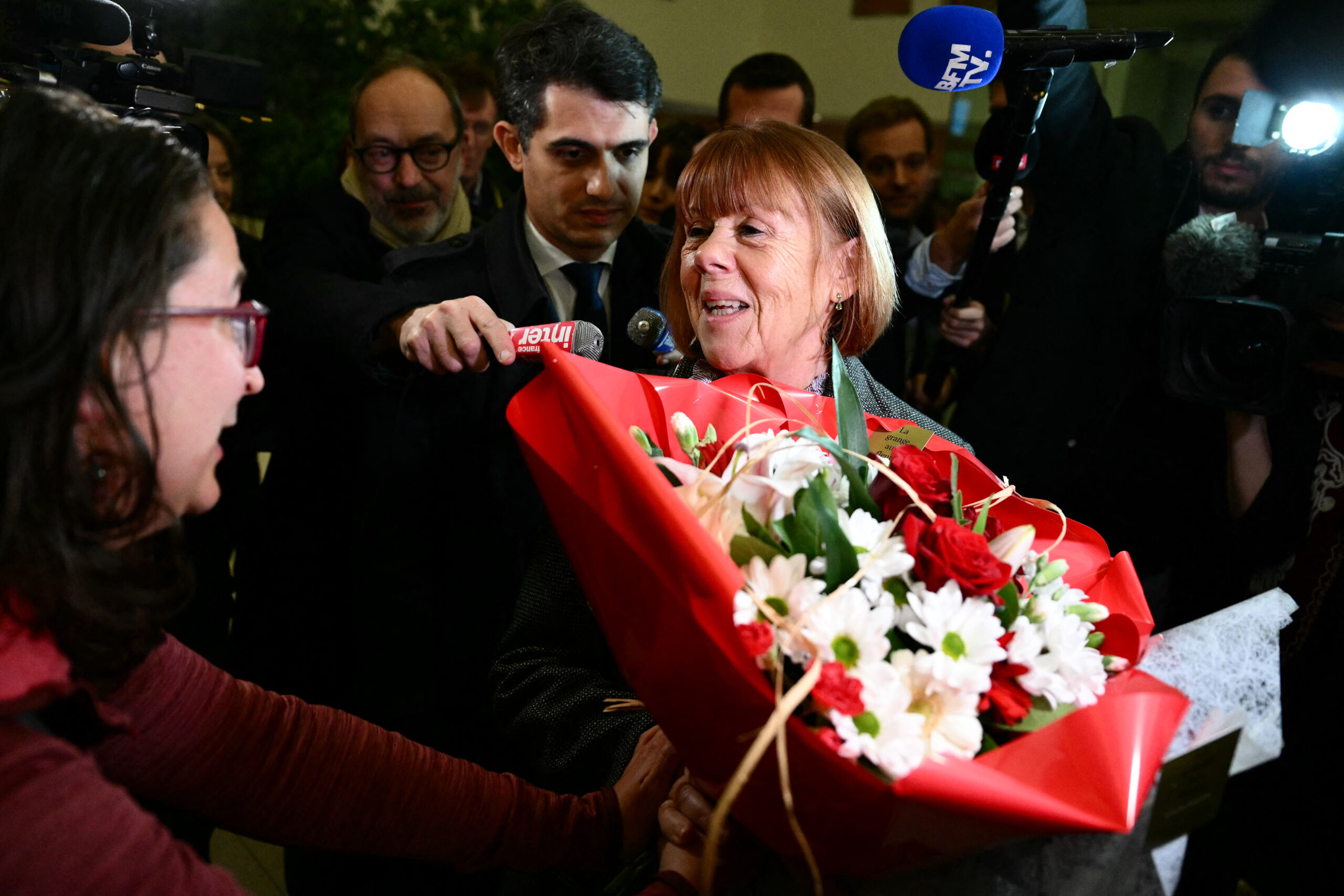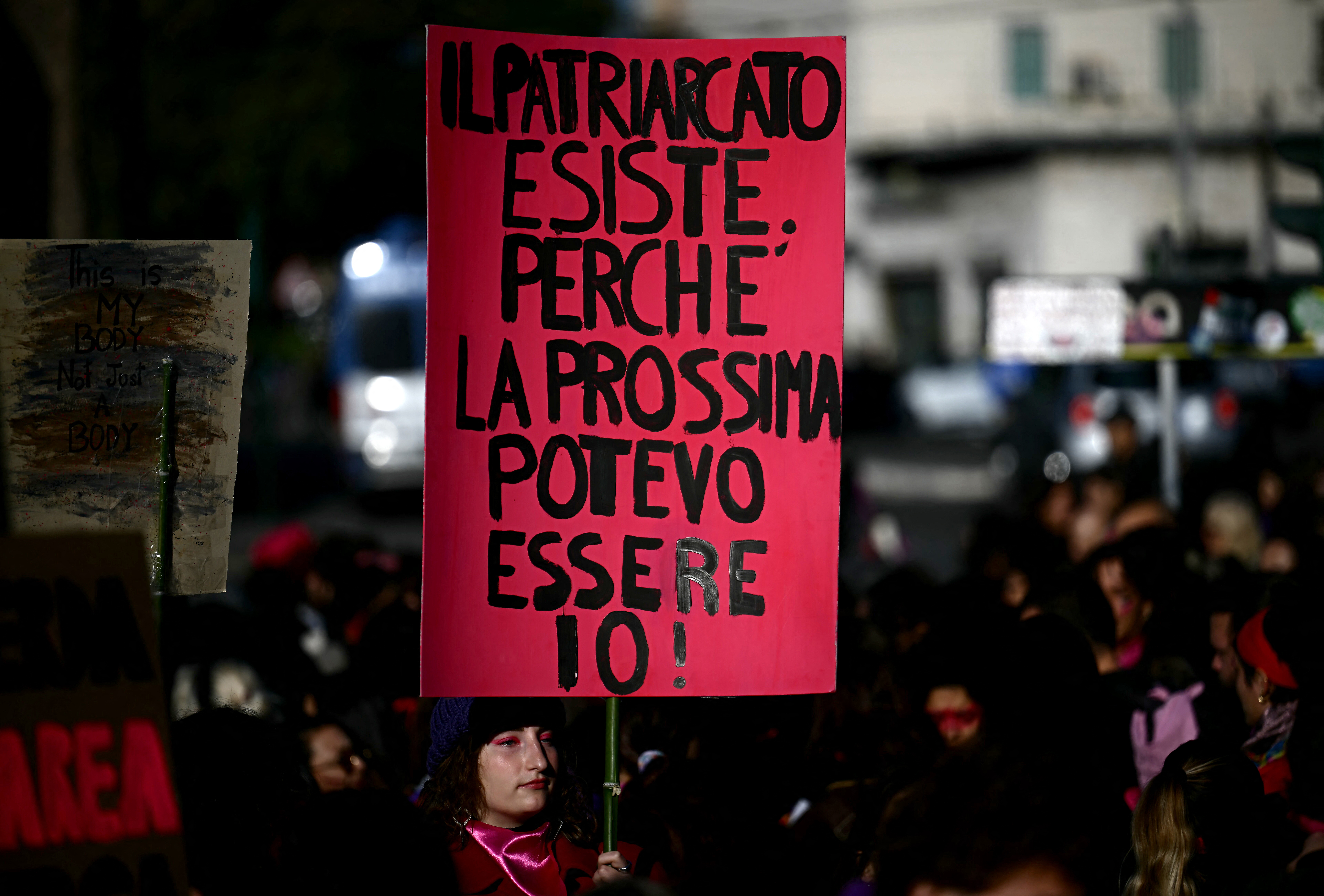Brussels – The most shameful form of violence, the most widespread, that knows no geographical, cultural, or economic boundaries. A violence that, more than nine times out of ten, is committed by men. On the International Day for the Elimination of Violence against Women, the EU acknowledges that one in three Europeans experience physical and sexual violence in their lifetime. On the day when prosecutors in France and Italy have spoken out on two of the most heinous cases in recent times, those of Gisèle Pelicot and Giulia Cecchettin, European institutions are wearing orange, reviving the symbolic words of the Mazan trial: “Shame must change field.”
Starting with the president of the European Commission, Ursula von der Leyen, who, in a video message, remembered that “behind every number, there is a face, a name, a soul, a story.” And she recalled the 22-year-old Venetian woman killed by her ex-boyfriend, Filippo Turetta – for whom Venice prosecutors have demanded life imprisonment – and the 72-year-old transalpine woman who was drugged for ten years by her husband and raped by dozens of men. For Dominique Pelicot, Mazan prosecutors asked for 20 years in prison.

“It is a day when every year we remember all the women we have lost,” began the president of the European Parliament, Roberta Metsola, in front of the plenary session in Strasbourg. More than three thousand a year in the countries of the European Union. But also “all those who have been beaten, abused, traumatized, and mistreated.” So, here we are talking about the experience of 50 million women aged between 18 and 74. A “social and cultural plague,” as Italian Prime Minister Giorgia Meloni called it.
The numbers released by the first Europe-wide survey published by Eurostat, the EU Agency for Fundamental Rights (FRA), and the European Institute for Gender Equality (EIGE) reveal a chilling truth: In the last ten years, there has been no progress. On the contrary, in terms of the crime of rape, “we have seen an increase, with new data showing that one in six women has experienced sexual violence, including rape, in her lifetime.”
Yet, in the past year, Brussels has made legislative strides. The accession to the Istanbul Convention, the international treaty against violence against women and domestic violence, and the adoption of the first EU directive on the subject will now have to be implemented by member countries. “In this legislature, we need to go further,” Metsola warned. For many, the EU law in place since last June has been a flash in the pan. It criminalizes female genital mutilation, forced marriages, non-consensual sharing of intimate images, stalking, and online harassment, toughens prison sentences, and contains a new list of aggravating circumstances. However, it failed on the most crucial point: a harmonized definition of the crime of rape based on the absence of consent.
“It is shameful that some member states have rejected the inclusion of consent-based rape legislation,” the directive’s rapporteur for the European Parliament, Swedish socialist Evin Incir, said. Pointing the finger at one name above all: French President Emmanuel Macron. It was the French and German governments that betrayed the expectations of the European Parliament and formed a blocking minority in the EU Council, along with a few other far more conservative countries, by preventing the crime of rape from being put on paper for the absence of consensus. In France and several other member states today, a woman must bear the marks of physical violence for the crime of rape to be recognized. The principle that ‘no is no’ is not enough.

The enormous gap is exposed in its most extreme form in the Mazan trial, where some of the 51 men accused of raping an unconscious woman defend themselves by claiming that Gisèle Pelicot’s husband had given them consent. What’s more, as the Liberal group leader in the European Parliament, Valerie Hayer, reminded us, “One in five French people think that a woman takes pleasure in being forced.”
Once again, the numbers hold the heads of state and government accountable for their responsibilities. And all men because, as another French MEP, Manon Aubry, head of the European Left, pointed out, “while it is true that not all men commit violence against women, it is also true that it is always men who commit it. In 2021, 20 percent of women in the EU experienced physical or sexual violence by a non-partner, 9 percent experienced degrading or humiliating acts other than rape, another 7 percent experienced physical, non-sexual violence, and 4 percent were victims of rape. And 19 percent of women who have had a partner in their lives have experienced threats, physical violence, or sexual violence from their partner.

At the debate in the European Parliament, someone recalled the unfortunate words of the Italian Minister of Education, Giuseppe Valditara, who recently declared that patriarchy no longer exists and that sexual violence has to do with the arrival of irregular migrants. The numbers refute this statement because, according to data published by Istat, in 2023, 94.3 percent of Italian women killed were victims of Italian men. While Italy legally abolished patriarchy in Italy in 1975, it is still largely culturally present. “We have to educate. There are no traditions, religions, or ideologies that can justify a single act of violence,” said Antonella Sberna, vice president of the European Parliament and MEP from Fratelli d’Italia.
Carolina Morace, MEP of the 5 Star Movement, replied to Valditara and “those who deny this emergency,” citing Giulia Cecchettin and Giulia Tramontano, “two of the many women killed by white, European, and wealthy men.” According to Morace, the key is “to invest in prevention and a culture of respect, countering not denying patriarchy.” It is that shame that must shift from the victim to the aggressor.
English version by the Translation Service of Withub




